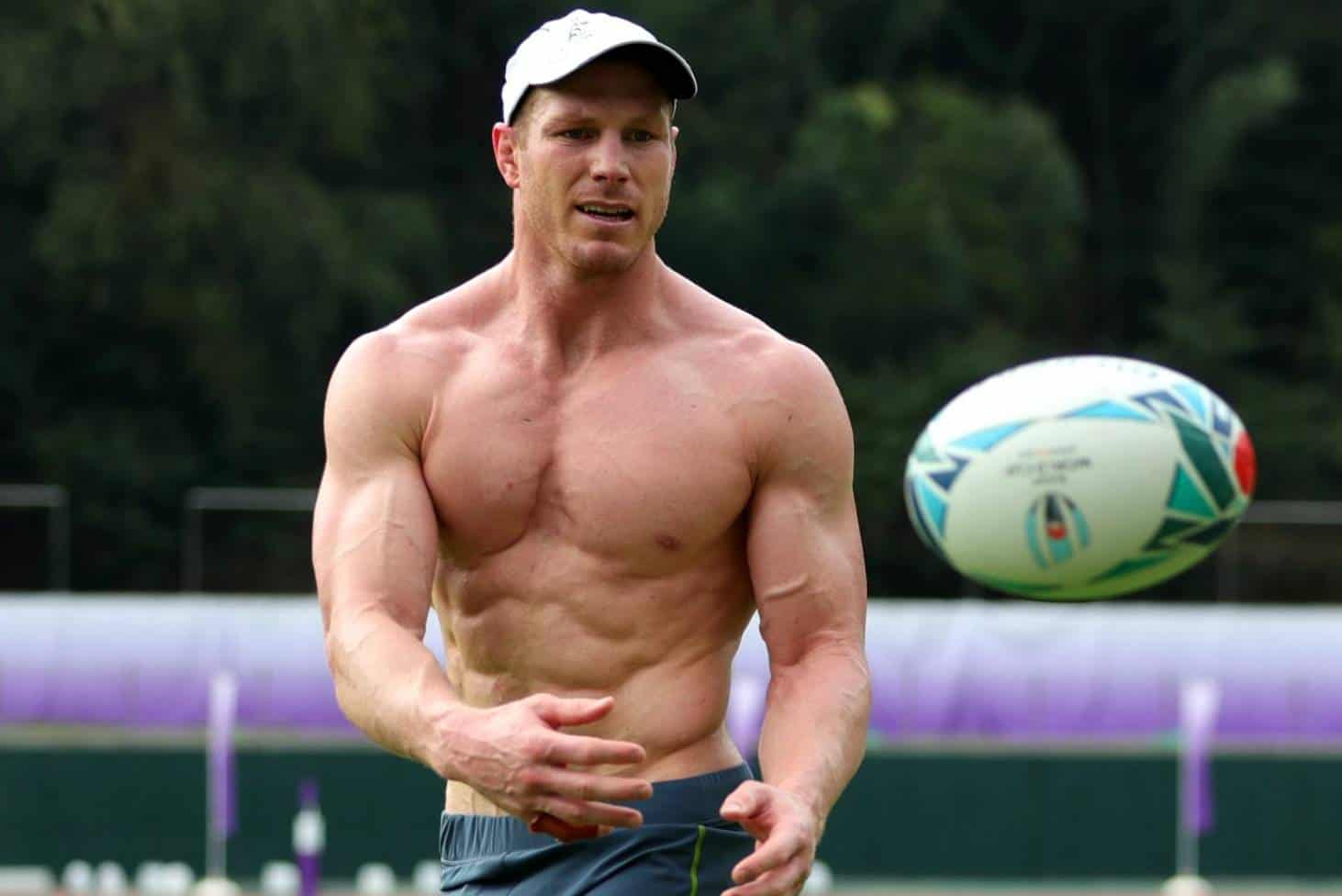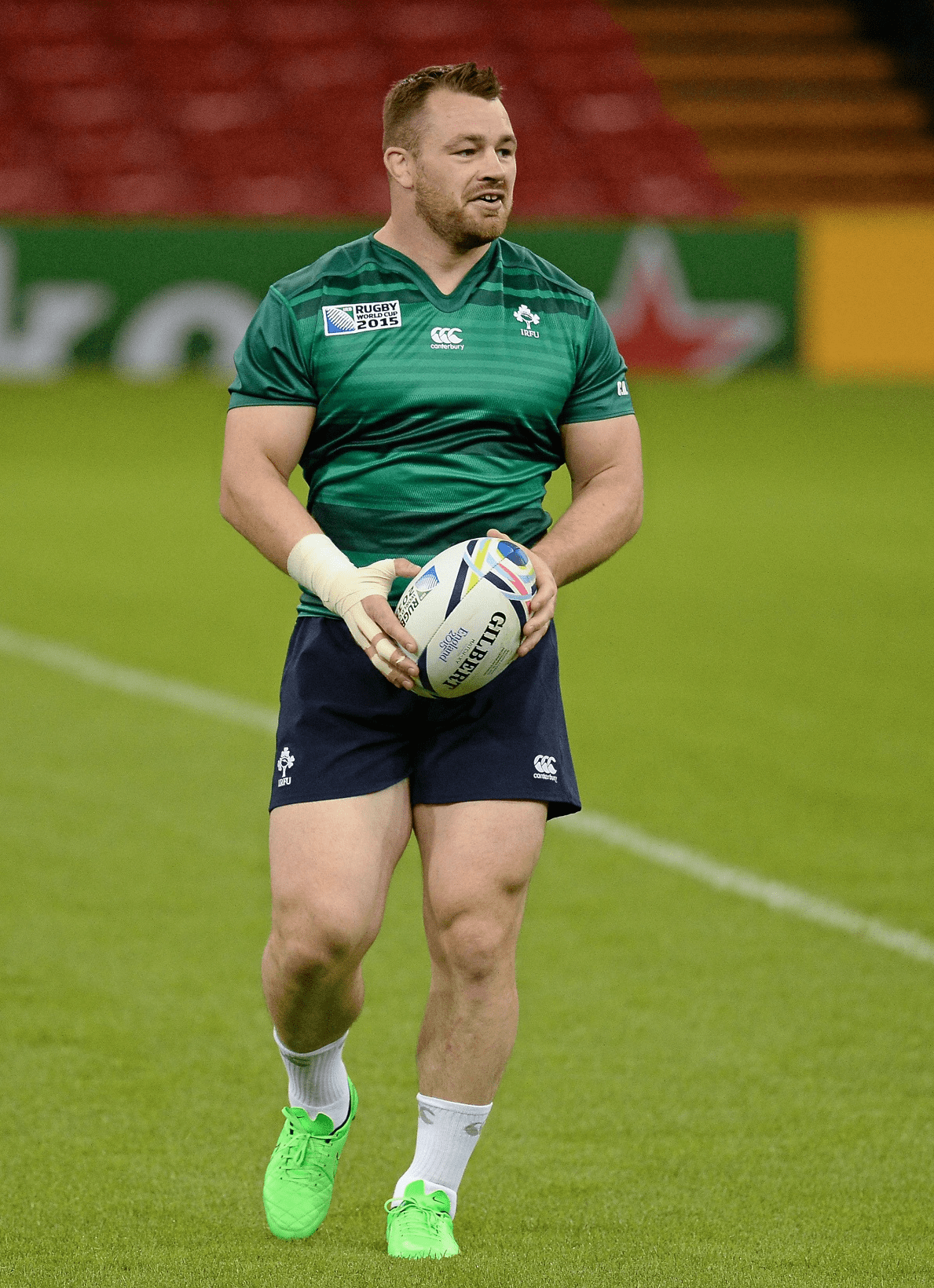Playing rugby can actually make you lose fat and muscle mass. It is common for rugby players to lose weight throughout the season due to the cardio intensity of the sport. Rugby players have to make a conscious effort to lift and eat throughout the season to stop losing too much size.

If you think lacing up a pair of rugby boots and signing up to your local footy club is going to turn you into an Adonis you may need to pick another sport. While being big, muscular and strong helps your rugby performance playing the sport can actually have a negative effect on these attributes.
This is because rugby is a grueling sport that is cardio intensive and involves lots of running. All of that cardio has a negative effect on rugby players’ muscles and can lead to them shrinking. It is actually common for rugby players to lose some muscle as the season progresses. This is due to a combination of the cardio of playing rugby, the reduction in weight training as skill training is prioritized and many players’ reluctance to force feed themselves as their calorie expenditure increases.
Rugby players don’t just lose muscle throughout a rugby season they also drop a bit of extra fat. Again due to the extra cardio of playing regular rugby matches and doing more rugby focused training sessions players are burning more calories. By burning extra calories they end up dropping a few percentage points of body fat and looking leaner.
While for most athletes and people dropping fat is a good thing for some rugby players particularly forwards that extra fat is helpful as it allows them to create more power at scrum time or when they are tackling and also makes them harder to clean out at the breakdown.
Another factor that results in rugby making you smaller is the injuries you pick up from playing. Even minor injuries can cause you to rest body parts which can quickly lead to muscle loss. For example if you hurt your wrist and decide to skip weightlifting sessions for a few weeks and only do light rugby training you will notice a reduction in overall muscle mass especially in your arm.
By the time professional rugby players get to the end of the season they are often mummies with all the bandages hanging off them. It is no wonder then that many of them look noticeably smaller then during pre-season.
Rugby players’ bodies typically follow the same progression every year. They finish the season smaller, leaner and carrying a few niggling injuries. They then take a few weeks break and let their niggling injuries heal.

Once they start off-season they are typically carrying a little excess fat after a few weeks of eating and not playing rugby. During off-season they focus on building as much quality muscle as possible through lifting heavy in the gym and limiting the cardio sessions. They will also try to consume large amounts of protein and aim for a lean bulk.
If done correctly rugby players will finish their off-season fully recovered from their niggling injuries and up a few kilos after gaining a considerable amount of muscle while also hitting personal records on multiple exercises. The smart rugby players don’t completely neglect cardio training and don’t let their bulk get too out of control by gaining excess fat.
During pre-season the goal for rugby players is to shave off excess fat and keep putting on a bit of lean mass or at the very least hold onto their off-season gains. This can be tricky as pre-season can be very cardio intensive as athletes try to get in shape for the upcoming rugby season.
After completing pre-season rugby players are in their physical prime and are not only lean but are holding onto large amounts of muscle while still being in great cardio shape. They are able to hold onto this peak condition for a number of weeks into the season but then it slowly declines as the season continues.
Throughout the rugby season players will stop lifting as many weights, will be battling injuries, have to deal with the grueling nature of playing games every week and hard training sessions. The result of this tough workload is players start to lose size and muscle.
The way rugby players stop losing size throughout the season is by doing maintenance weightlifting sessions. This is where they don’t lift super heavy or perform lots of sets but do enough work to stimulate the muscle so it doesn’t atrophy. Players who don’t lift weights throughout the season tend to lose more muscle mass then those who do. However, rugby athletes need to be careful not to lift too frequently during the season as otherwise they increase their risk of injury and over train which can lead to an acceleration of muscular atrophy and poor on field performances.
Another way rugby players prevent themselves from losing muscle is through nutrition and supplementation. Rugby players will eat at least 1 gram of protein for every pound of body weight and eat a diet that is high in meat and vegetables. They will also consume supplements such as protein powders, Vitamin D, BCAAs and creatine.
Finally rugby players will try to rest as much as possible when they are not training or playing. By getting 8 hours of sleep and taking frequent naps rugby players let their bodies recover and cause a spike in Growth Hormone which helps their muscles recover.
Wrapping Up
As rugby players are so big and muscular many people think that it is rugby the sport that makes the athletes so muscular. However, this is not true as playing rugby actually causes you to lose size and muscle due to the cardio intensive nature of the sport and the damage it does to your body.
Rugby players are big and muscular because they follow specialized diets consisting of large amounts of calories and high protein combined with intense weightlifting.
